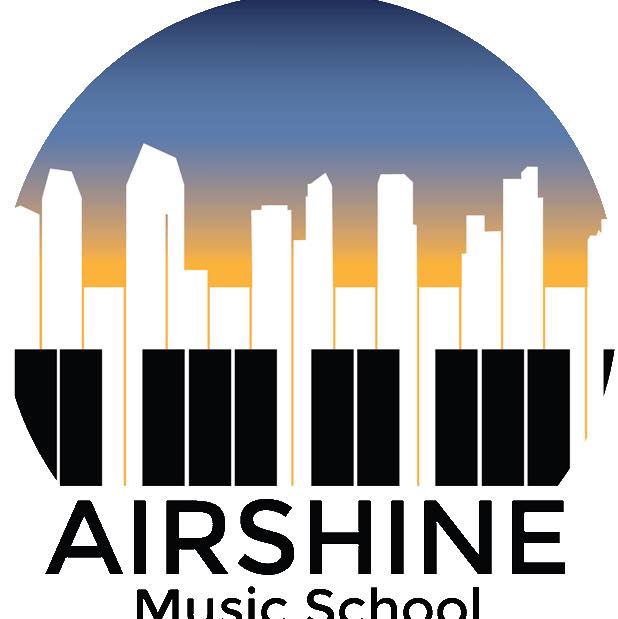HOW DO I KNOW IF MY CHILD IS READY TO START MUSIC LESSONS?
The biggest indicator is their interest. If your child is always finding the piano tucked away wherever you want to go and wants to play, that’s a big hint. Knowing numbers 1 through 5 is essential. Being able to read is not a requirement, but parents will need to help read and follow directions at home, making sure the child can complete assignments.
WHAT’S THE BEST AGE TO START MUSIC LESSONS?
The starting age range in 5 to 7. Children under 5 do better in a Preschool Music Class where the children learn through play, which the best for children ages 5 and under. We sing (which is very important to playing an instrument), play rhythm and melody patterns (which builds critical listening skills), dance (which builds body coordination).
HOW OFTEN ARE LESSONS AND CLASSES?
Students come for a lesson or class once a week. Beginners can start with a 30-minute or 45-minute lesson, which gives the student more time to learn songs and technique. Students will have the opportunity to go deeper with music theory, ear training, technique, ensemble playing and songwriting. It is going to be awesome!
DO I NEED TO PRACTICE BETWEEN LESSONS?
Beginners need to commit 10-15 minutes per day, 5 days per week. Intermediate students 20-30 per day, 5 days per week. Advanced students 45 minutes-1 hour, 5 days per week. Make it a part of your routine, just like any other activity you enjoy. Add it to kids’ chore chart and make it part of their homework. That’s the best way to improve and get the most out of your lessons.
CAN I JUST PRACTICE A LOT ON 1 OR 2 DAYS?
Cramming doesn’t really work with music. Spreading out your time over the week is better for your brain to absorb the content and for your body to learn to right movements.
WHAT HAPPENS IF I GET SICK OR GO ON VACATION AND MISS A LESSON?
You will need to cancel your lesson at least 24 hours in advance on our scheduling and communication portal, My Music Staff. You’ll then be given a makeup credit you can use to schedule a makeup lesson. I have limited openings during the week.
DO I NEED A KEYBOARD OR PIANO AT HOME TO ENROLL IN PIANO CLASSES?
Yes! Lesson time is when teachers instruct students and give assignments for the rest of the week. Time spent playing at home is essential to learn and improve and be prepared for new material the next week. Honestly, lessons are boring when each week is a review of the last lesson. Regular practice is the way to keep music exciting and dynamic.
WHAT KIND OF KEYBOARD WOULD YOU RECOMMEND?
When purchasing a keyboard, you want 3 basic things:
1) 61 keys, at a minimum. Pianos have 88 keys, so 61 keys will get you through the first couple years of lessons. Plan on upgrading keyboards or getting a piano to get 88 keys.
2) Weighted keys. Many keyboards are too easy to play, and it takes very little finger strength to push the keys down. You need the weight of the key to build those small muscles in the fingers and hands and develop the coordination to play with excellent technique.
3) Touch sensitivity. This means that when you strike the key forcefully, the sound is loud; when you strike the key gently, the sound is quiet. This is essential when you are learning dynamics (loud’s and soft) that makes music expressive and exciting.
WHERE CAN I BUY A KEYBOARD?
Sam Ash, Amazon, Guitar Center, Costco. Local retailers are a good place to start, to get a sense for what’s available. Many stores price match Amazon, so do your homework to get the best price. You can find good keyboards on Craigslist and Facebook Marketplace. Be thorough and play every key on the keyboard to make sure all the features work. If you’re buying a keyboard, you’ll need a stand, foot pedal, bench and footstool (if feet don’t quite touch the floor yet.) All are available at local retailers and Amazon.
WHAT KIND OF PIANO WOULD YOU RECOMMEND?
Pianos are like cars: you could have a Classic or a lemon, depending on how it’s been maintained. Buying a used piano is great if the piano has been maintained or can be improved with the help of a piano technician. If you are buying a piano from a private seller, hire a technician to assess the instrument before purchasing. Christy Fogerty at Adelaide’s Piano Services maintains my instruments and I recommend her so highly! Get in touch on her website, https://www.adelaidespiano.com.
If you are going to a retailer, the salespeople will give you the information about the piano and how to care for it. Often they will provide a tuning in the purchase of the instrument. If you want to do some research on the different types of pianos, I recommend “The Piano Book” by Larry Fine, available on Amazon for $15 or free at the San Diego Public Library.
WHICH PIANO METHOD DO YOU USE?
I use a variety of methods and supplementary material. For piano lessons, I teach from Piano Adventures (Faber & Faber), Bastien, Alfred, Piano Safari, and Dozen-a-Day, and the Royal Conservatory (RCM) materials.
For voice lessons, I teach from the Full Voice workbooks because students learn to sight sing (i.e. read music) and singing with great technique, as well as the Royal Conservatory (RCM) materials.
